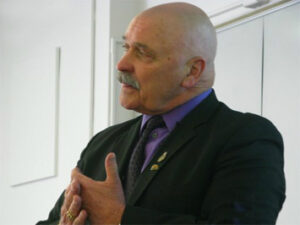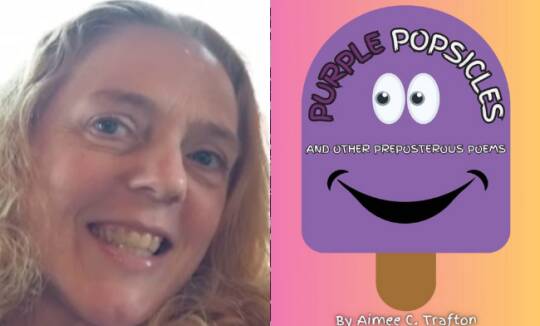In this Guest Blog, Paul Graham, the head librarian for Yorkville University, discusses the art of Verbal Judo and how it can help in our dealings with others.
Practicing Verbal Judo: The Art of Adaptive Language
Even in our connected society of mobile devices, Skype, and email, we are mostly unprepared for the variety of conflict and tension that is possible in our daily use of language.
We encounter people who are tired, depressed, overworked, and stressed. Without professional training, we are not equipped to communicate effectively in challenging situations, even though we use language everyday. We sometimes use CAPITAL LETTERS to express frustration in emails, perhaps making an issue more problematic. Our body language may appear irritated, bored, or too aggressive with others. We may inappropriately use comedy in our meetings, hurting someone’s feelings, or damaging our reputation. As managers, or team leaders, we might try to micromanage our staff, or show too much emotion in our critique of their work. This may not only affect your reputation, and personal relationships, but reduce your chances for promotion and further employment opportunities.
In order to achieve your life goals, you cannot simply be good at what you do, you must also learn how to communicate with others in a professional way. You must learn the art of “Verbal Judo”.
According to Dr. George Thompson, the most powerful phrase in the English language is “Let me see if I understand you….” In a crisis of communication, when you are in the heat of angry, emotional debate with a colleague, friend, or loved one, this brief phrase focuses frustration towards clarifying another person’s position, rather than allowing emotions to escalate. This is one of the many effective tips from Dr. Thompson (a former police officer and professor) who developed a program called “Verbal Judo”, mastering the art of linguistic adaptation to those with whom you’re speaking. In this blog, I’ll be summarizing an online lecture by Dr. Thompson, then providing a way to begin implementing his ideas in your daily work and life.

Natural Language
“Natural language is disastrous!!” claims Dr. Thompson. Unless you’re trained in the art of diplomatic language, then you may be unware of how problematic everyday language is for clear communication. Many of us will be working in groups, facing potentially stressful group dynamics on a daily basis. We will invariably face situations where we feel like expressing our emotions, speaking too forcefully.
Dr. Thompson reminds his audience in these situations that, “If what you’ve said makes you feel good, you probably shouldn’t have said it.” Natural language is an minefield that we face everyday, our first objective is to recognize this problem.
Let’s review a common example. A student comes home with a report card with four grades with an A…and one with an F. The natural language response is to ask, perhaps in a disparaging tone, “What is this F grade? What happened!?!”. Once you start negative, you’ve lost, according to Dr. Thompson; you’ve failed in your communications with others to be positive and to motivate them. Rather than focus on the one negative aspect of the report card, you can answer in another way, “Wow, I never got 4 As in high school! That’s great, that’s excellent!” You can certainly ask about the F grade, but you don’t have to start with the negative. This happens in other situations, such as asking people to “calm down” in a heated argument. Very few people respond well to natural language.
Being Emotionally Weak
One of my favourite parts of Dr. Thompon’s lecture is when he asks his audience if anyone has a bad temper or if they are at least quick to temper. A few people raise their hands and a few more after he prompts them further. He looks at them and bluntly says in his best authoritative tone, “You’re weak!”. This is not just a way to startle his audience to attention, but reflects specific physiological consequences. When you get upset, explains Dr. Thompson, you lose blood from your face, you lose use of the forebrain and you are left with the midbrain. This reduces your potential for rational, balanced thought and action. If someone upsets you with their language, Dr. Thompson claims that you have lost, you’ve failed, and you may make things worse by responding emotionally. You must not only recognize that your natural language can get you into trouble, but you need to recognize the physical consequences of getting angry. To avoid this condition, you need to know how to go “quiet inside”, to calm yourself under verbal insult. Working on controlling your emotions in general is not just something for Zen Monks or Vulcans from Star Trek; this is something you need to cultivate in a strategic, pragmatic way to help yourself and others.
Tactical Civility
So, how does Dr. Thompson suggest you stay calm under verbal assault? Remember, if you get upset, you lose, you’ve failed to engage in the situation in a professional manner. This is not to say that feeling those emotions are not normal…or that we should try to supress emotions…we all feel emotions on different levels and that is an important diverse trait of our species. We can, however, choose how we will reaction to those emotions. In order to cope with such situations, we must develop what is called “Tactical Civility”. This is the ability to respond positively to emotionally negative situations. For example, Dr. Thompson suggests that when you are in doubt how to react in an argument, then be more polite. You must learn to respond to negative situations with more, not less, politeness.
This form of Tactical Civility also greatly relies on forms of stoicism. Stoic philosophy (most readily associated with the Roman Emperor Marcus Aurelius), is a way of thinking and acting that implies a control of one’s emotions and a kind of acceptance of life’s struggles. Like “Verbal Judo”, it is a practice to be developed. This can be considered quite starkly when we have to engage in the correction of others. Whether you are a teacher correcting a student’s work, or an employer critiquing an employee, you need to take upon a stoic, or disinterested tone and manner, focusing away from yourself, and taking up the perception of those you are critiquing. This is what Dr. Thompson calls “disappearing”. The more you personally disappear from the conversation, the more focus can be placed on the specific correction needing communication to the student or employee. This requires that you have some empathy for that person, that you try to embrace what it is to be that person. Empathy absorbs tension. However, If you accidently or intentionally insult people, or allow the perception that a correction is ‘personal’, you build ground for them to stand on they didn’t have before. They escape “righteous correction”.
Science of deflection
The art of “Verbal Judo” is also based on using other people’s energy, not your own, to deflect emotions and negative commentary. The science of deflection is a life-long art, but there are a couple of great examples, such as “spring boarding” and “Self-deprecating Humour”. Spring boarding is a tactic based on using goal-based language. Everything must be focused on goal centered ends in these challenging conversations. This means learning to speak to the point and developing language springboards to your point. In every challenging situation, you can employ words that permit you to “springboard” to your goal, such as “AND” or “BUT”. You could say, for example, “I can see that you’re upset… but….”. Another example: “I appreciate your concern… how do you think we can make this better?” You develop “spring board” phrases to jump over emotion to the goal-centred language of cooperation and clarity of purpose.
Another strategy that Dr. Thompson recommends is the art of self-deprecating humour. Self-deprecating humour is self-directed criticism which in this case can be used to diffuse a situation. For example, imagine someone said to you: “Hey, how’d they let you into this university anyway, you’re an idiot?!”, you could respond, “I’m too fast for the security guards; they haven’t caught me yet.” The second that you get “sucked in to the other’s dynamics”, then you’ve lost. Remember, there are no winners in emotional arguments, and the most challenging element of moving forward with Tactical Civility is your own ego.
When to Act?
Remember that having these skills is not a recommendation to allow people to verbally abuse you in your relationships, or work situation. In such situations, you must always personally assess how you’ve been treated and what acceptable and logical action is required. However, it will not help you to be emotional, to argue, to put your relationships and employment in jeopardy. Use Verbal Judo first, and then reflect on further courses of acceptable action given the context.
Practicing the Art in Real Life
In completing this blog entry, it is important to note that even when you implement these strategies, they will require practice. I ended my Friday of last week in a very awkward, tense group meeting where an individual from another organization expressed emotional frustration over the phone to the group. It was unexpected and created emotional confusion; I could feel my blood pumping faster, my hands actually started shaking a bit, and I felt a bit embarrassed in front of my colleagues. However, I managed to employ some of these techniques… I thanked the individual for being honest with us; I apologized for any misconception of our joint business goals, and used more politeness. It does not mean that the rest of the conversation was perfect, but it avoided a far worse situation. Disappear, deflect, and be more polite. And hey, isn’t that the Canadian way.
Basic Verbal Judo Check List
- Review your business or academic etiquette notes (e.g., Verbal Judo) before any major group meeting or presentation.
- Learn to speak to the point (e.g., your academic papers, presentations, daily relationships, etc.)
- When in doubt, answer challenging emotional situations with more politeness.
- Pose questions to clarify the situation (Let me see if I understand you…)
- Do not use negative language; do not put others down, or speak your feelings, unless they’re positive.
- Remember that you’re always representing something… your school, your work place, or simply your own reputation.
Verbal Judo Resources Online






